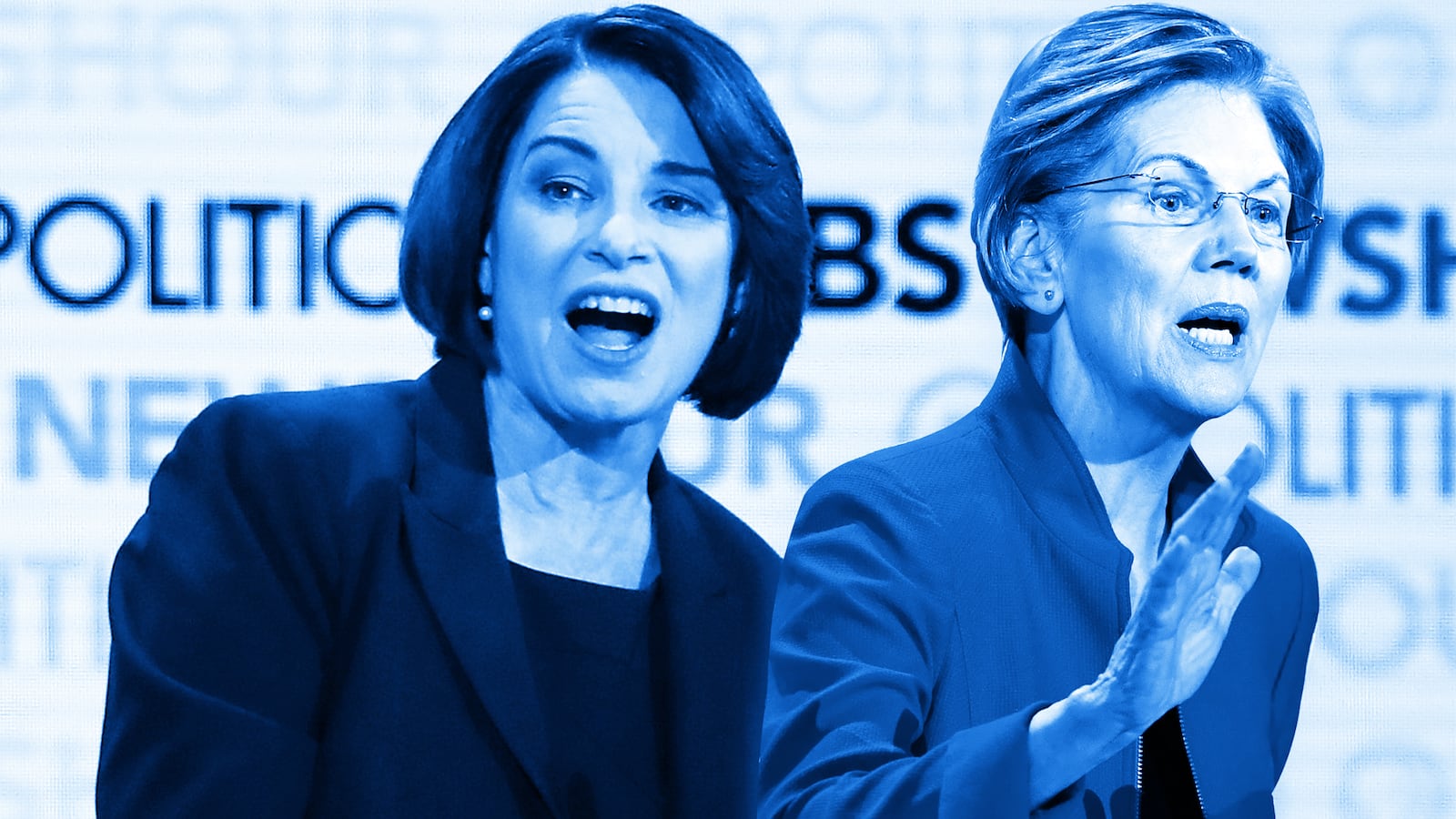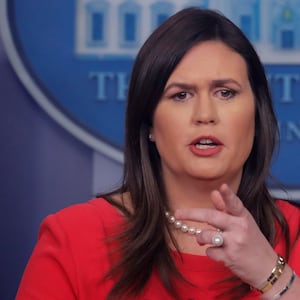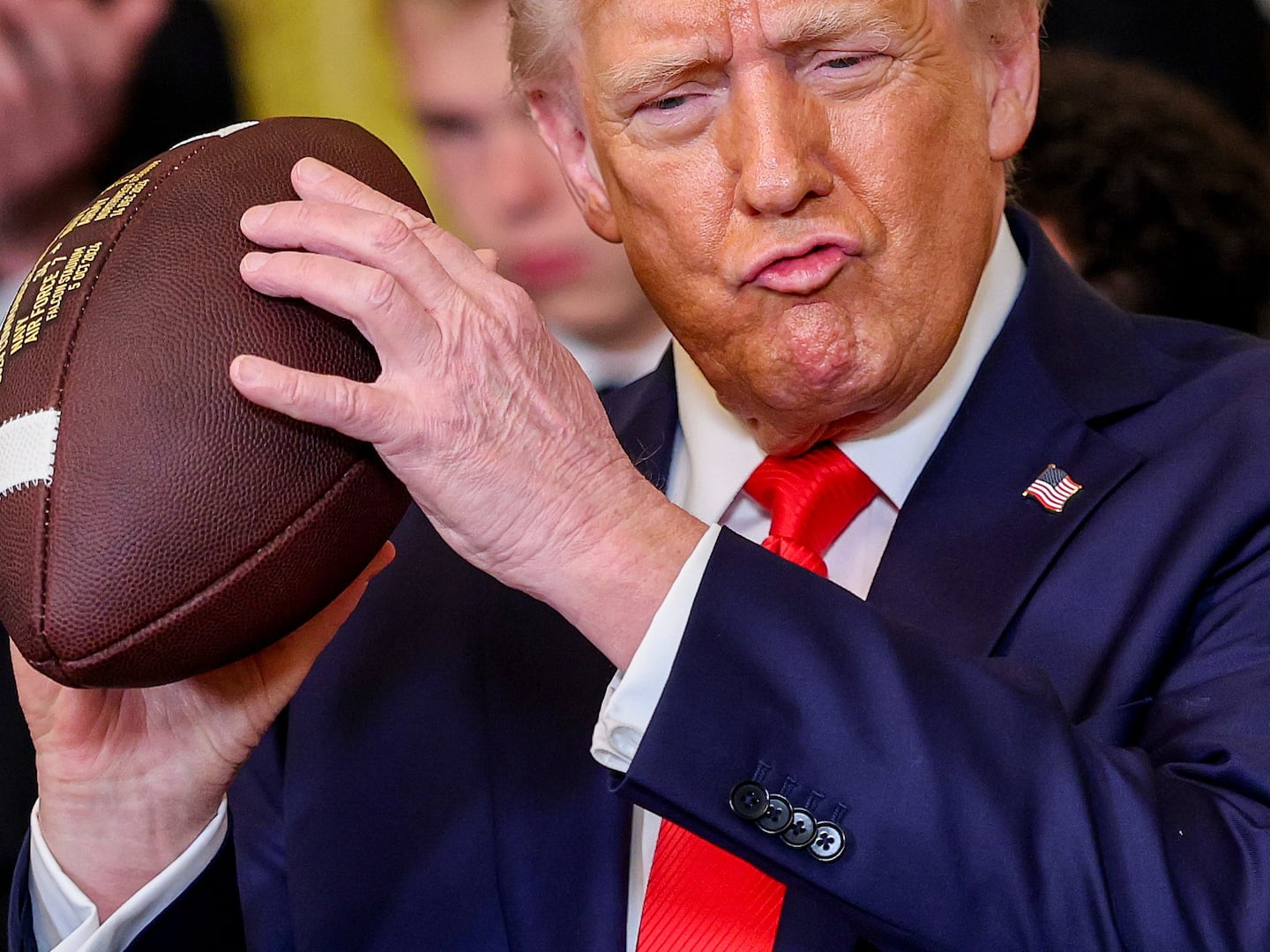Since Mayor Pete Buttigieg first began his unlikely transformation from an ambitious curiosity to an unexpected frontrunner for the Democratic presidential nomination, his fellow candidates have been straining at the leash to finally take him to task for his lack of transparency, his close ties to the finance and tech industries, and the overall presumption of his candidacy.
On Thursday night, they finally released the hounds.
Following an opening salvo by Sen. Elizabeth Warren of Massachusetts that targeted Buttigieg for his willingness to host high-dollar fundraisers with the “wealthy and well-connected,” the mayor of South Bend, Indiana, was badgered and battered by candidate after candidate for his fundraising, for his difficulty in winning over black voters, and for his thinly veiled hits against other candidates for their age and entrenchment in the Democratic establishment.
“The mayor just recently had a fundraiser that was held in a wine cave full of crystals and served $900-a-bottle wine,” Warren said, employing the phrase wine cave in the same manner that most people might say Times Square porno theatre. “Think about who comes to that.”
Unlike Buttigieg, Warren continued, “We made the decision many years ago that rich people in smoke-filled rooms would not pick the next president of the United States.”
Warren’s attack, executed halfway through the event, was the first direct and substantive criticism between any of the candidates in a debate that had, until then, bordered on slumberous. The debate featured the most in-depth discussion of the risks the United States faces due to climate change of any debate this cycle, and avoided the rhetorical sinkhole of “Medicare for All” that has defined the first half-hour of nearly every presidential debate this year.
But once others onstage smelled the blood in the water—particularly Sens. Amy Klobuchar of Minnesota and Bernie Sanders of Vermont—they returned again and again, on subject after subject, to the mayor of Indiana’s fourth-largest city, who finally faced the frontrunner treatment.
Warren, who is competing for the same white, college-educated voters who make up Buttigieg’s base, led the offensive, saying that Buttigieg’s coziness with wealthy donors amounts to a roadmap to the same corruption that led to President Donald Trump.
“If you can’t stand up and take the steps that are relatively easy, can’t stand up to the wealthy and well-connected when it is relatively easy, when you are a candidate, then how can the American people believe you will stand up to the wealthy and well connected when you are president and it is really hard?” Warren asked.
Buttigieg countered that other progressives, including President Barack Obama, House Speaker Nancy Pelosi (D-CA), and, until recently, Warren herself had held the same kinds of fundraisers in order “to build the Democratic Party and build a campaign ready for the fight of our lives.”
Such “purity tests,” Buttigieg said, “shrink the stakes of the most important election of our lives.”
But while Warren was hammering Buttigieg from the left, Klobuchar came after what is potentially his biggest weakness: a distinct lack of Washington experience.
Calling back to the previous Democratic debate, Klobuchar noted how Buttigieg has “mocked” the experience of his primary rivals. “Washington experience is not the only experience that matters,” he said in November. “There’s more than a hundred years of Washington experience on this stage and where are we right now as a country?”
In response, Klobuchar touted the Washington experience of Warren, Biden, Sanders and herself, saying, “I just think you should respect our experience when you look at how you evaluate someone who can get things done.” After Buttigieg said he thinks they have “bigger fish to fry” than fighting over who has more and better experience, Klobuchar got a huge applause break when she shot back, “I don't think we have bigger fish to fry than picking a president of the United States.”
“I certainly respect your military experience, that's not what this is about,” she added when he invoked his time in the U.S. Navy Reserve. “This is about choosing a president.” Whereas Buttigieg ran unsuccessfully to be chair of the Democratic National Committee, Klobuchar said, “That's not something I wanted to do. I want to be president of the United States. And the point is, we should have someone heading up this ticket that has actually won and been able to show they can gather the support that you talk about, moderate Republicans and independents as well as a fired up Democratic base. And not just done it once, I have done it three times.”
“I think winning matters,” Klobuchar continued. “I think a track record of getting things done matters, and I also think showing our party that we can bring people with us, have a wider tent, a bigger coalition and, yes, longer coattails, that matters.”
Buttigieg did his best to make the case for his electability, responding that “if you want to talk about the capacity to win, try putting together a coalition to bring you back to office with 80 percent of the vote as a gay dude in Mike Pence's Indiana.”
Of course, when Buttigieg won his 2015 mayoral race with 80 percent of the vote, that amounted to about 8,500 voters. When Klobuchar was re-elected state-wide in Minnesota last year she received more than 1.5 million total votes in a state Hillary Clinton won by less than two points in 2016.
The twin exchanges were the most direct and aggressive jabs aimed at Buttigieg, but were far from the only elbows shoved at the mayor. In her closing statement, Klobuchar obliquely referenced the “entitlement” of people who enter public service out of ambition rather than a sense of civic duty; Sanders, while riffing on the influence of billionaires in politics more broadly, chided Buttigieg by “complimenting” him for having five fewer billionaire donors than former Vice President Joe Biden.
“My good friend Joe Biden, and he is a good friend, has taken money from 44 billionaires this election,” Sanders said. “And Pete, you’re lagging behind—you've only taken money from 39!”
After the debate wrapped, Buttigieg’s campaign told reporters that the exchange did nothing but expose Warren’s hypocrisy on raising money at high-dollar fundraisers, and said that he was “the only one talking about bringing people into the fold to defeat Donald Trump.”
“If you were looking for the shot to take him out, you missed your mark,” a member of Buttigieg’s campaign told The Daily Beast.
Nelini Stamp, who was serving as a spin room surrogate for the Warren campaign on behalf of the Working Families Party, told The Daily Beast, “When we think about what was the fundamental issue of this, it’s who is catering to people who want ambassadorships? Who is catering to people who want appointments, who want influence? When you have a fundraiser in a wine cave, or whatever kind of enclosed door fundraiser, we just don’t know who you’re beholden to.”
She also said it was unfair for Buttigieg to criticize Warren’s personal wealth when they are at such different stages in their careers and lives. “I’m pretty sure his first job out of college was quite a salary,” she said, referring to his work with McKinsey & Co.
Towards the debate’s conclusion, Buttigieg and his rivals were given the chance to—”in the spirit of the season,” as moderator Judy Woodruff said—to either ask forgiveness or give a gift. After the bruising of his political lifetime, Buttigieg made a plea for civility between the candidates, nodding to the general election ahead as a reason to “make sure there’s not too much to ask forgiveness for when that day comes.”
“I think all of us will want the same thing at the end of the day,” Buttigieg said. “We know what a gift it would be for the future, for the country, for literally anybody up here to become president of the United States compared to what we’ve got.”
The moment that one of the Democrats becomes the nominee, Buttigieg said, “the 24 who aren’t that nominee will have to rally around the one who does.”
Warren, in turn, asked for forgiveness for sometimes getting “a little hot” when advocating for the voters that she meets on the campaign trail, the presidential debate equivalent of telling a job recruiter that your biggest fault is that sometimes, you work too hard.
“Sometimes I get really worked up, and sometimes I get a little hot,” Warren said. “But when you hear enough stories about people who are really down to their last moments,” she continued, it’s hard not to.
“When I think about what we could do if we get a majority in the House, a majority in the Senate, and get back the White House, we could get this country to work,” Warren said. “And that’s why I’m in this fight.”










